Family Keepsake
Explore The Interactive FlagWhile Francis Scott Key's song was known to most Americans by the end of the Civil War, the flag that inspired it remained an Armistead family keepsake. It was exhibited occasionally at patriotic gatherings in Baltimore but largely unknown outside of that city until the 1870s. The flag remained the private property of Lieutenant Colonel Armistead's widow, Louisa Armistead, his daughter Georgiana Armistead Appleton, and his grandson Eben Appleton for 90 years. During that time, the increasing popularity of Key's anthem and the American public's developing sense of national heritage transformed the Star-Spangled Banner from a family keepsake into a national treasure.
National TreasureCollect Stars To Complete The Flag
Why is the flag so much shorter today than it was when Mary Pickersgill sewed it?
- The end of the flag was burned in the Battle of Baltimore
- Samples have been removed for conservation testing
- The Armistead family gave snippings of the flag away as souvenirs and gifts over time
-
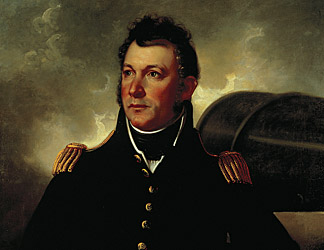
Lieutenant Colonel George Armistead
The commander of Fort McHenry during the 1814 bombardment, Armistead became an instant hero after the battle. Portrait by Rembrandt Peale, 1816. Courtesy of Maryland Historical Society.
-
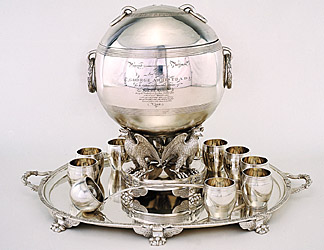
Armistead Punchbowl
The citizens of Baltimore presented this silver punch bowl, shaped like a British bombshell, to Lieutenant Colonel Armistead in 1816.
-
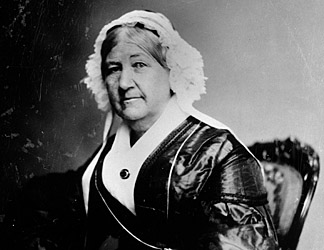
Georgiana Armistead Appleton
George Armistead’s daughter, inherited the flag upon her mother’s death in 1861. As its guardian and devoted champion, she encouraged its display at patriotic celebrations. Courtesy of Christopher Hughes Morton.
-
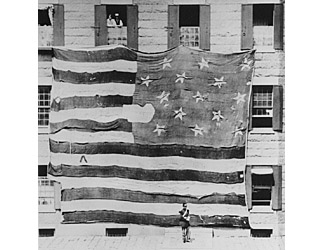
The First Known Photograph of the Star-Spangled Banner
Taken at the Boston Navy Yard in 1873, the photograph increased public interest in the flag. Courtesy of American Antiquarian Society.
-
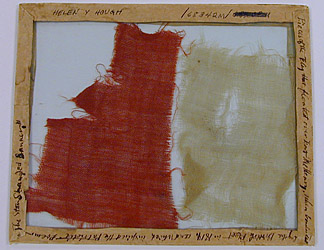
Souvenirs of the Flag
The Armistead family gave away dozens of small pieces of the flag. “Indeed had we have given all we had been importuned for,” Georgiana Appleton wrote, “little would be left to show.”
-
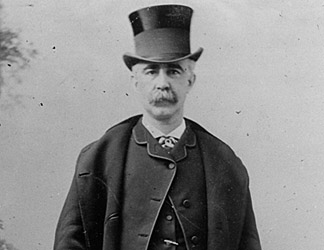
Eben Appleton
George Armistead’s grandson, inherited the flag in 1878. His concern for the flag's deteriorating condition led him to keep it in a safe-deposit vault in New York. Courtesy of Christopher Hughes Morton.





